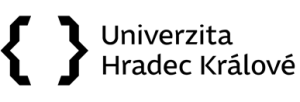Course description:
In this course, we will investigate a number of different approaches to power that emerged in 20th-century continental philosophy. While drastically different in scope and content, these approaches can generally be seen as attempts to overcome the subject-centred model that views power in terms of an agent?s ability to achieve private goals (Weber). Instead of focusing on subjects and their goals, we will analyse the generation of power from the standpoint of the public sphere, where 'everything that appears ... can be seen and heard by everybody? (Arendt 1958); we will investigate how power occurs among acting and talking individuals. More specifically, we will a) see power as an ability to coordinate actions (Arendt), b) examine it through the lens of communicative rationality (Habermas) and c) investigate the productive nature of power and its connection to discourse (Foucault). By approaching the phenomenon of power from these different and often contradictory perspectives, we will not only highlight their strengths but also discuss their shortcomings and address common criticisms.
Essential Bibliography:
H. Arendt, The Human Condition, The University of Chicago Press 2018
H. Arendt, Origins of Totalitarianism, Penguin UK 2017
M. Foucault, Discipline and Punish: The Birth of the Prison, Vintage Books 1995
M. Foucault, History of Sexuality, Macat International Limited 2017
M. Foucault, ?The Order of Discourse?, in: R. Young (ed.), Untying the Text: A Post-Structuralist Reader, Routledge and Kegan Paul Ltd 1981
J. Habermas, Theory of Communicative Action (vol. I/II): Reason and Rationalization of Society, Polity Press 1986
J. Habermas, The Structural Transformation of the Public Sphere: An Inquiry into a Category of Bourgeois Society, MIT Press 1991
- Teacher: Daniil Koloskov
